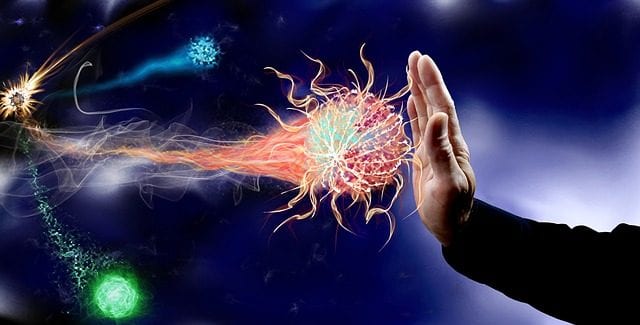
How does the human immune system work?
The immune system is a few human organs, tissues and cells, the mutual functioning of which protects the body from various infections (viruses, bacteria, fungi) and other foreign substances. When immunity weakens, the likelihood of getting sick increases. A person becomes more vulnerable both to bacteria that we “cling” to the external environment, and for our own. After all, inside our body is also a pathogenic microflora. The failure of the immune system can lead to the development of autoimmune diseases: then the body does not recognize its own healthy cells and begins to destroy them.
The immune system is similar in its functioning to the nervous system: it is also directed towards the central organs and peripheral organs. The organs and their tissues react to various signals of the body, are endowed with a multitude of receptors and a specific memory. Immune system organs include:
- central organs: red bone marrow
- peripheral: lymphonoduses, spleen, tonsils, thymus, appendix
The key place in the immune system is occupied by leukocytes – white blood cells. They come into contact with foreign bodies that enter the body and participate in the formation of antibodies to fight infection.
Signs of weakened immunity
If you suffer from frequent colds, you feel constant fatigue, aching muscles and joints, broken sleep, headaches and allergic skin rashes, so the immune system signals a malfunction. Long-lasting non-catarrhal disease is already a consequence of the fact that immunity could not overcome the virus that got into the body, etc. The lack of immunity led to the fact that the human body would perceive every “ordinary” infection as a completely new disease, gradually losing its defenses to fight the disease. What, in fact, occurs in patients with AIDS (acquired immune deficiency syndrome): the body ceases to resist disease and from them a person dies. The immune system remembers any contact with a virus, a bacterium or an allergen and generates protective antibodies to them. The immunity that a person has acquired over the course of his life as far as the diseases that he tolerates or when vaccinated, is called acquired. The rarer type of immunity is congenital, in which a person inherits genetic immunity to a number of diseases.
What factors weaken the immune system
Often we harm our immune system and we undermine the body’s defenses. So, the following factors can weaken immunity:
- long stay in stress, depression
- diets, starvation, unhealthy food
- lack of vitamins and microelements in the body
- strong physical activity
- trauma or surgery
- bad ecological situation
- bad habits: smoking, alcohol, low mobility
- uncontrolled enthusiasm for medicines
- untreated chronic diseases
- chronic lack of sleep
How to strengthen immunity
“Magic pill” for the development of strong immunity does not exist: certainly, vitamin complexes are important and must be taken. But first, on the recommendation of a doctor, and in the second one can not do with vitamins. Positively affect the protective forces of the body any factors associated with a healthy lifestyle. A full rest, sports, balanced nutrition is a pledge of strong immunity.
Do not forget to treat carefully as to your psyche, and to the psyche of people around you. And, no matter how trite it sounded, observe both personal hygiene, and keep your home clean. Often the infection enters the body through the skin, with unwashed or poorly thermally processed food or dirty hands.
Image credit: WerbeFabrik
